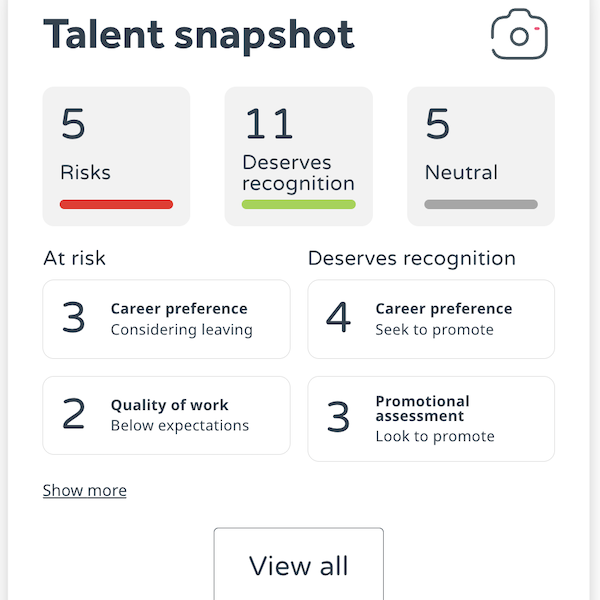World Mental Health Day is so important
Everything works better when your mental health is good, so every company needs a coherent and effective strategy for helping employees who become mentally ill. As a culture we have made great efforts to open up about mental health recently, and while there is a long way to go, workplace initiatives like World Mental Health Day can undoubtably save lives. There are great benefits for the company, too, in areas like employee engagement and employee retention, so everyone should win from this.
In 2005 the government accepted the argument of the economist Richard Layard that talking therapies should be made widely available on the NHS for people with psychological problems. All sorts of things followed, like the Improving Access to Psychological Therapies programme and ultimately the current Health and Safety Executive guidance on mental health at work.
All this is great, and it is marvellous to know that anyone who becomes stressed can be referred to people who can help, but it ignores one rather important thing: why do we wait for people to become unable to cope, when we could get upstream of the problem and do something about the stresses people are under?
Two thirds – one third
According to Layard about two thirds of employees’ stress derives from their personal lives: money, housing, relationships, family problems and so on. The employer has little connection with much of this and almost no control over it.
But the remaining third of the stress in your employees’ lives is coming from the work itself, and this is the one thing that you do have some control over. Why on earth do we put so much effort into dealing with the effects of stresses over which we have no control at all, while ignoring the work-related stresses that contribute a third of employees’ pain and which could potentially be reduced, maybe even to near-zero?
Stress doesn’t care
Stress is cumulative – we don’t compartmentalise domestic and work-derived stress and deal with them at different times, it all just contributes to the internal emotional ‘pressure’. So, someone who is coping with their personal problems can be pushed over the edge by work-related stresses, and vice-versa. It is this addition of domestic and work-related stress that makes stress the number one cause of lost working time.
So, anything we can do to reduce the overall pressure on people would be useful. We can’t reduce it to nothing – all of us need a little pressure to perform, and if we didn’t need to earn money it would be tempting to sit around eating chocolate and doing our nails. As the pressure increases, so we do more, but there has to be some limit. As we approach that limit it becomes harder and harder to do anything well, and we start to make mistakes, become less co-operative, and are more likely to go sick, perhaps long-term. That’s the sort of problem world mental health day is here to tackle.
What shall we do?
Given that so many working days are lost each year to (mostly avoidable) stress, it makes sense for employers to do whatever they reasonably can to reduce it. Of course you should have MHFA training and so on, and yes why not have the Samaritans in to talk about mental health, and it’s great to have an open conversation about mental health in the workplace, as well as confidential channels for people who need to talk but don’t want to talk out loud. But to do all this without tackling the stresses generated in the workplace is just silly. Take the plank out of your own eye, as someone once said.
It’s easy to make a start – you just need to find a way to ask each individual what is working well about the way they work and what isn’t. The questions you ask should encompass the whole gamut of human needs, including measures for social interaction, autonomy and so on, as well as just the practical side of work. Then you need to do something with the results – or rather not just do something, but do something specific. We suggest that every individual, or every small group if you are not confident to this work at an individual level, should have a conversation with a manager that looks into the frustrations and difficulties they face at work, treating every one of these as an opportunity – because that’s what they are.
Some of the opportunities will be obvious: training needs, places where communications can be improved, ways to make the resourcing or whatever work better, opportunities to acknowledge people’s work more and thank them for contributing to the group. Some will be less obvious, like issues with group dynamics, that entail getting people into groups that align better with the ways human beings naturally coalesce into in social and practical combinations. All will have implications for employee engagement and employee retention.
And then?
Then it’s on to the conversations, collaborations between staff and their managers to work out routines and arrangements that will serve the staff better so the stress on them is reduced and they are freed to do more effective work.
From our experience in doing this sort of work we can be confident that every company will find some quick wins in this process, and that frustration and wasted effort will decrease. We also know that the very process of holding the inquiry will have a positive long-term effect on the staff, because as they get to understand what works and why at a human level, so they will waste less energy on things that don’t work.
Note that we are not talking about making work easier, or about taking the load off the people who seem more vulnerable. That might look like a humane thing to do, and it might be unavoidable in some situations, but in the longer term could well be counterproductive. If you were struggling because your work doesn’t match the innate frameworks of the human being, and were then told you could just do less of it to prevent you become overwhelmed and going mad, you could easily take from that that you were faulty somehow. On the other hand, if you were invited to collaborate in making the work processes better, you could end up with a feeling of achievement and a greater sense of control over work, and your effectiveness would likely increase rather than fall off.
Start now!
It’s up to you how to go about this – we can help if you like – but however you do, please do get on and start now. Not just because it is World Mental Health Day – if you only bring a small number of your more stressed staff down below the threshold where they start to feel unwell, you will be doing them, and the shareholders, an enormous favour.
It’s also the humane thing to do – and that makes it a real win-win.
About WeThrive
Employee Engagement, Evolved
WeThrive is the agile employee engagement platform that uncovers how your people truly feel, enabling managers to create highly effective teams, increase employee retention and employee wellbeing and deliver better business results.
At organisation, team or individual level WeThive’s unique 4cs model leverages the latest psychological understanding to quickly and easily deliver insights, actions and learning content to help your managers become better managers, creating a high performance culture and improving business results. UK based, WeThrive has an average 91% employee engagement survey completion rate and to date has made over 5000 company-wide recommendations.

